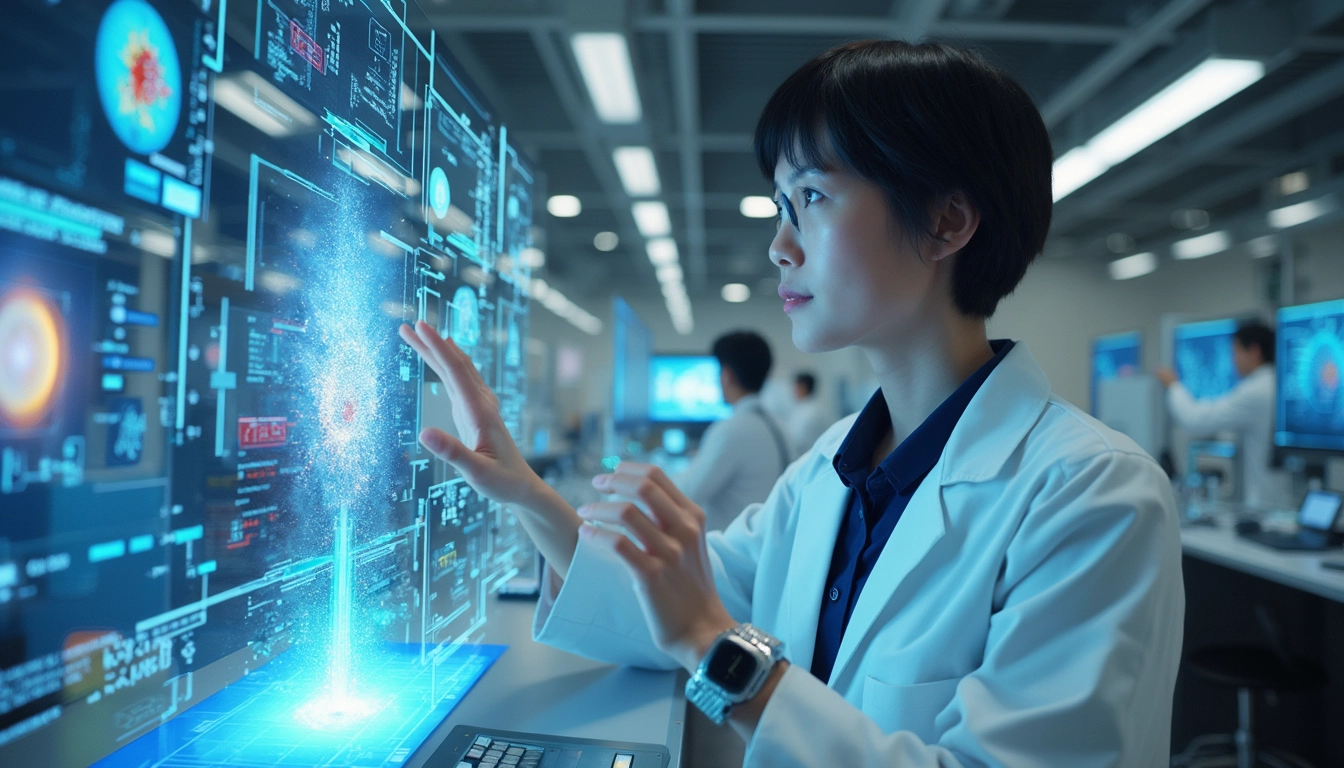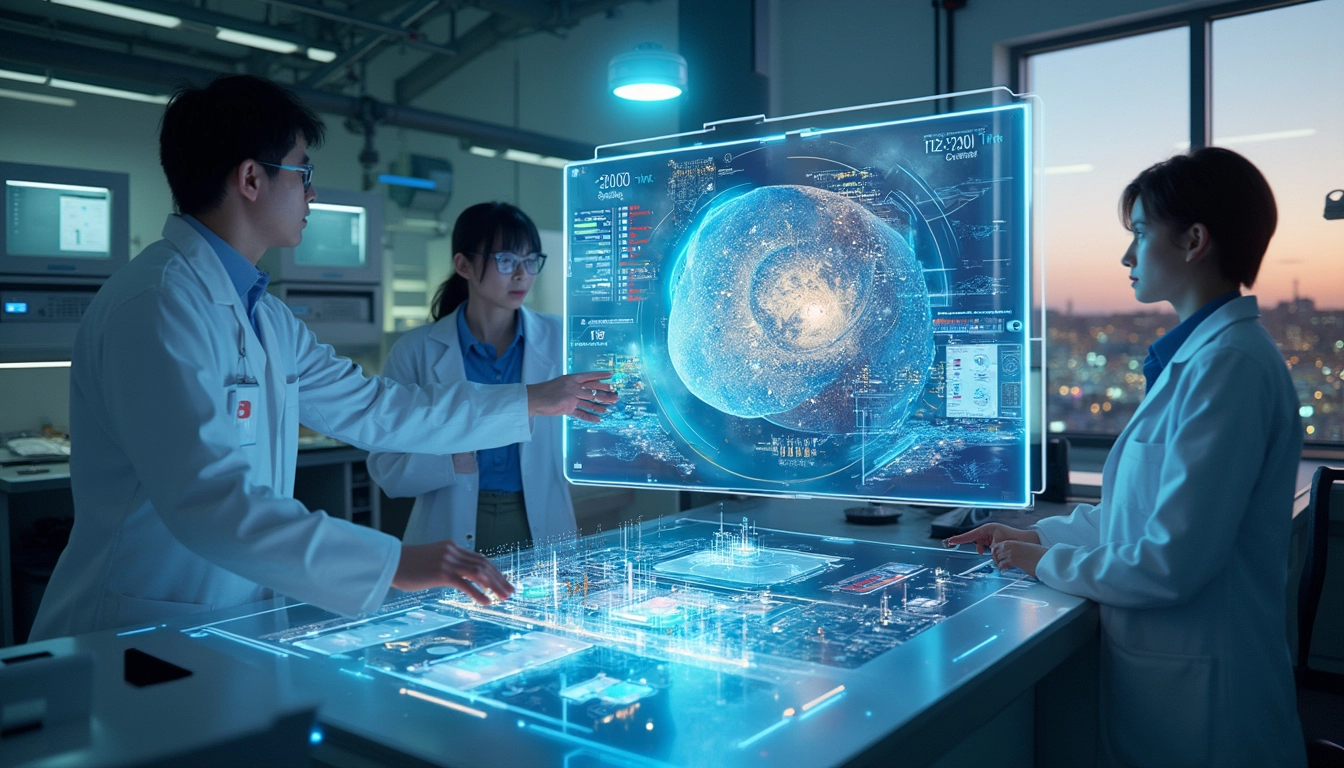
AI Revolutionizes Physics Research: Transforming Our Understanding of the Universe
Artificial Intelligence is fundamentally transforming our understanding of physics and the cosmos through groundbreaking applications in data analysis and theoretical research. The integration of AI technologies with physics research has led to significant discoveries at facilities like CERN and the IceCube Neutrino Observatory, potentially offering insights into the universe’s ultimate fate.
Table of Contents
Key Takeaways:
- AI and machine learning are revolutionizing data interpretation in particle physics experiments
- Deep neural networks at facilities like the Pierre Auger Observatory enable precise cosmic ray measurements
- Simulation-based inference using AI is accelerating scientific discoveries
- AI tools like AlphaGeometry are solving complex mathematical problems in physics
- Advanced AI systems could help predict the universe’s ultimate fate
AI’s Impact on Physics Research
Fundamental physics is experiencing a transformation through AI-powered research methods. The technology is handling complex calculations and data analysis that would take humans years to complete. At CERN, machine learning models make split-second decisions about which data points to keep or discard, significantly improving research efficiency.
I’ve observed how AI is automating various aspects of scientific research. Quantum computing developments combined with AI are processing vast amounts of particle physics data, leading to faster discoveries and verifications of phenomena like the Higgs boson.

Breakthroughs in Particle Detection
The implementation of deep neural networks at the Pierre Auger Observatory has revolutionized cosmic ray detection. These systems provide unprecedented precision in measuring high-energy particles from space. Similarly, the IceCube Neutrino Observatory has used AI to confirm neutrino emissions from our galaxy for the first time.
Automated Scientific Discovery
AI is reshaping how scientific research is conducted. Sakana AI in Japan has developed systems capable of writing research papers from scratch, while MELVIN AI designs quantum experiments by combining existing procedures in novel ways. Advanced computing processors are making these automated discoveries possible.
Future of Universe Studies
Princeton physicists are using AI to identify unusual events in particle collisions that might reveal new physics theories. These developments could potentially help us understand how the universe will end. Quantum machines paired with AI are pushing the boundaries of our cosmic understanding.
Automation and Innovation
For those interested in automation beyond physics, platforms like Latenode demonstrate how automation can revolutionize various fields. The principles used in physics automation can be applied to business processes, content creation, and social media management.
Future Implications
The integration of AI in physics raises important questions about the role of human scientists in future discoveries. While AI accelerates research and uncovers patterns humans might miss, the interpretation and theoretical framework still require human insight. This partnership between AI and physicists could lead to breakthrough discoveries about our universe’s fundamental nature and its eventual fate.


